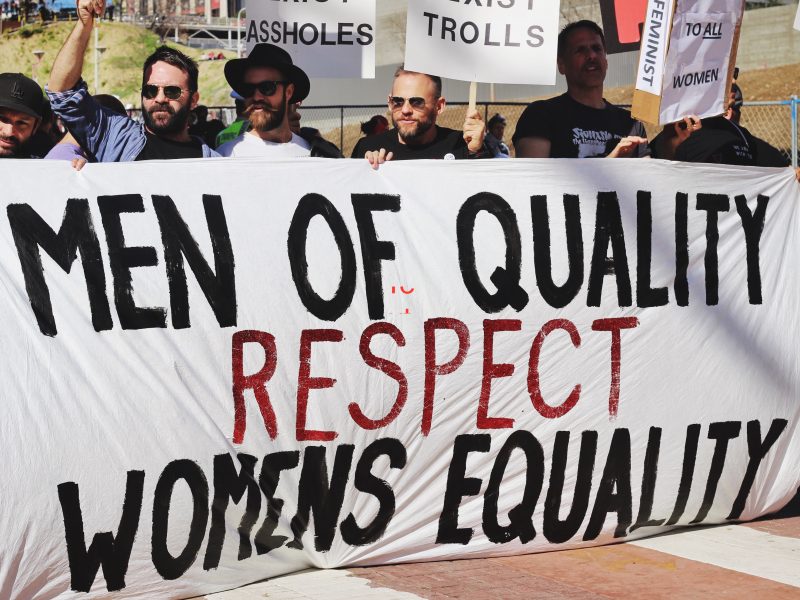
Gender Inequality at Work
Man may work from sun to sun
But woman’s work is never done.
This proverb dates back to the last century, when the workplace was predominantly a male domain, reflecting patriarchal social, legal and political structures. Women were either excluded or restricted in their ability to join the workplace, in much the same way that they were excluded from other economic and political rights, such as the right to own property, and the right to vote.
Back in those days, men went out to work and women stayed at home. The proverb reflected the understanding that a woman often worked longer hours than a man because housework and raising children are jobs that never end. These patterns of responsibility came to be seen as ‘natural’ and developed into normative assumptions epitomised in the notion of the ‘male breadwinner’ household within which the role of a woman is defined as ‘housewife’.
Things have truly changed. Significant advances have been made in the legal and political status of women, alongside increasing levels of participation of women in the workplace. The dominant model of the family has shifted towards a dual-earner model. These advances have resulted in changing societal expectations of women. Women are now expected to assume both career and family responsibilities. Meanwhile, the breadwinner-housewife model persists in modern normative depictions of men and women in the workplace. Women are still expected to take on the bulk of caregiving responsibility, making career decisions in and around this primary role. Men are still socialised into primary roles of breadwinner and provider, expected to ‘work from sun to sun’ with little or no time left for domestic or childcare responsibilities. With a modern workplace culture of long working hours and 24-7 connectivity, particularly within the professions and the financial world, the old sexual divisions of labour are reinstated. It is for this reason that many employers’ diversity initiatives aimed at addressing gender inequality fail.
Do ‘Work-life’ Balance Initiatives Help to Address Gender Inequality?
Although many diversity policies are now branded as gender-neutral ‘family-friendly’ or ‘work-life’ policies, they are rarely utilised by men. The implicit assumption is that these policies are to enable greater time to tend to caregiving responsibilities and are therefore really for women. They are opt-in, ad hoc and discretionary in nature, not part of mainstream work practices. Far from enabling women to succeed, they may operate to segregate them in terms of status, pay and ultimately leadership opportunities, creating barriers to success. At the same time, men are not incentivised to utilize these policies, knowing that to do so will likely have a negative impact on their career prospects.
As a society, we have cause for collective concern. When women are the only ones to utilise these workplace policies, the normative assumptions about men and women’s place in society is reinforced.
Moreover, when the issue of ‘work-life’ is positioned as an issue affecting primarily women this deflects attention away from structural factors such as workplace cultures and reward systems that operate to disadvantage working men and women alike.
Most workplace cultures are still based on the ideal of the ‘unencumbered male’ – a worker able and willing to ‘work from sun to sun’, facilitated by a stay-at-home partner able to take full care of domestic duties and responsibilities. This ideal is a creation of the 20th century; it does not reflect the reality of many modern-day households where both partners work outside of the home. Nor does it reflect shifting lifestyle aspirations, particularly among younger generations, in terms of what they want for themselves or their children.
Gender Inequality: A Mental Health Issue For Both Sexes
Workers wanting a career and family are faced with particularly stark dilemmas. For women, if they want to achieve parity with men in the workplace they must emulate the unencumbered male model and ‘work from sun to sun’ at the expense of either having a family or spending time with their family. If they choose to follow this model and have a family they confront two issues: firstly, they face the demands of a ‘second shift’ of domestic responsibilities when they arrive home at the end of a day’s work. Second, they are likely to experience either conflict with family members and/or internal conflict as a result of deviating from societal and cultural expectations of what it means to be a ‘good mother’. For men, they are on the one hand advantaged by the unencumbered male model to pursue their careers safe in the knowledge that domestic responsibilities will be taken care of by their wives, even if they have jobs of their own. On the flip side, men can find themselves constrained by this model, bearing heavy financial responsibilities, and excluded from full participation in family life. The tensions between personal aspirations and the reality of the demands of the modern workplace while different for men and women can lead to stress, depression, and anxiety for both sexes.
As a society if we are serious about addressing gender inequality on the one hand and the increasing incidence of mental health issues in the workplace on the other then it may be time to acknowledge the correlation between these two phenomena and begin to challenge outdated models of what it means to be both a ‘good worker’ and a ‘good parent’.
ORIGINALLY PUBLISHED ON HONG KONG FREE PRESS
[photo credit: Les Anderson]
- Posted In:
- Diversity & Inclusion
- Gender Equality
- Workplace
Farzana Aslam
Director and Principal Consultant at Kintillo, Farzana has over two decades of professional experience including as an employment law Barrister (3 Hare Court, Middle Temple, London), in-house employment Counsel (Goldman Sachs, Asia-Pacific and Japan), Principal Lecturer, Law Faculty, the University of Hong Kong (Professional Ethics, Civil Litigation, Employment Law, Business and Human Rights), and Chair of Justice Centre Hong Kong.
All stories by: Farzana Aslam

